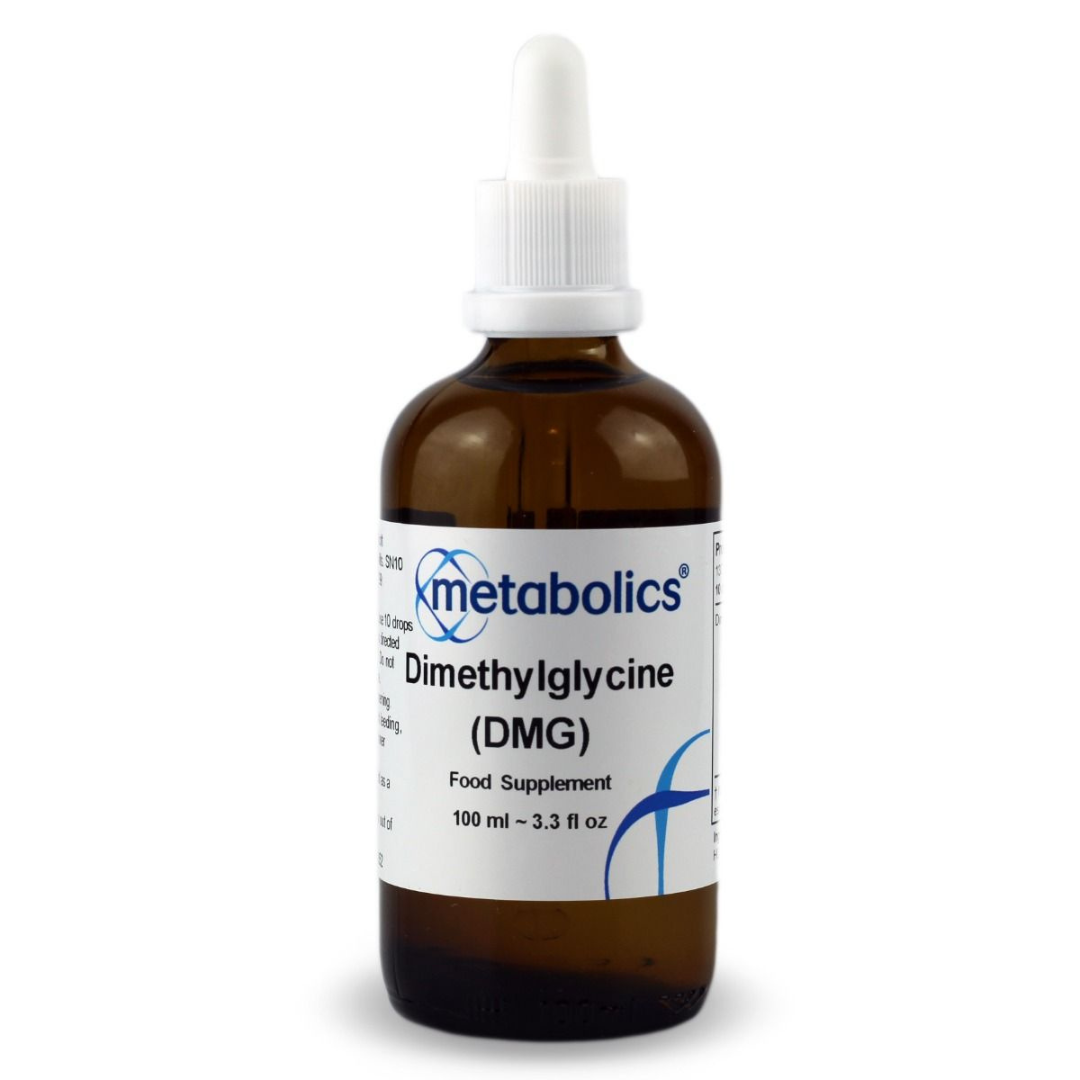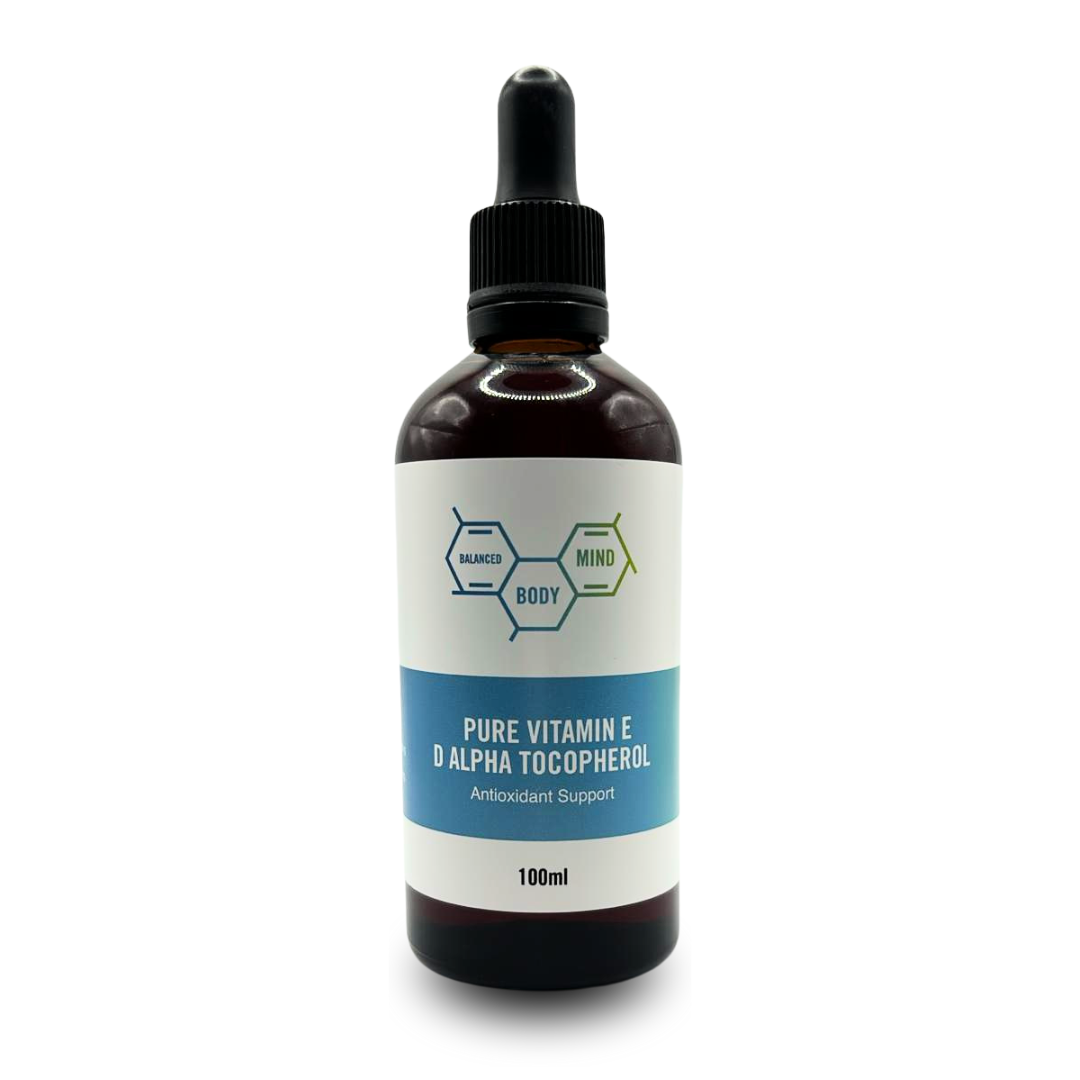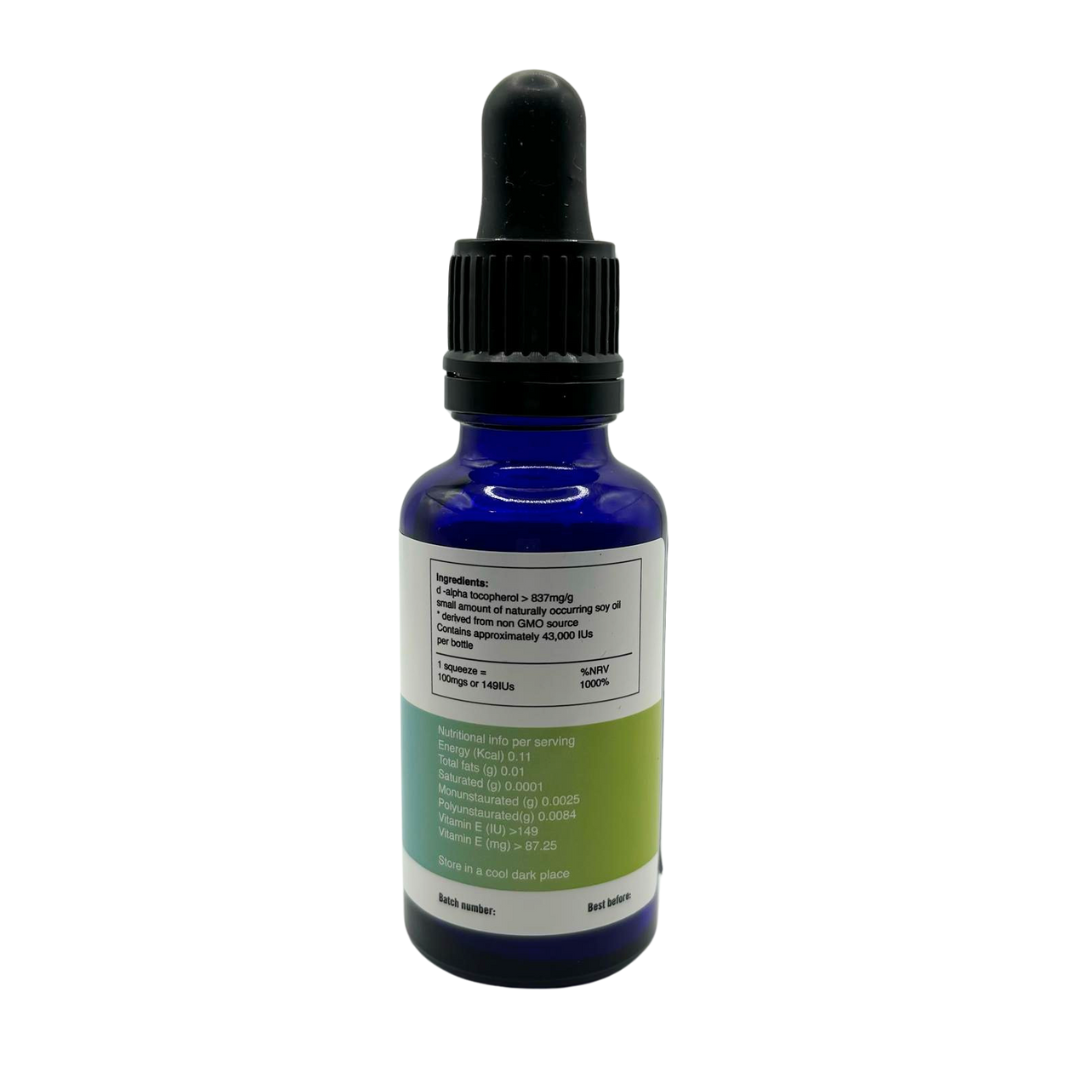Choline is converted to betaine which loses a methyl group to become DMG. Transmethylation then occurs. This is an enzyme controlled reaction where a methyl group is donated by DMG to complete the synthesis of another molecule, sarcosine. Sarcosine then donates a methyl group to become glycine. This process occurs a billion times a second. Transfer of methyl groups requires Folic acid, Vitamin B12, FAD and NAD+.
DMG is very easily absorbed in the mouth and small intestine from where it is transported to the liver. As it is quickly broken down in the body, smaller doses taken at several times a day between meals are more effective than a larger dose once a day.
DIRECTIONS / DOSAGE
Recommended dose 10 drops per day in water with food. The stated recommended dose can be changed as directed by your healthcare practitioner. Do not exceed this recommended dose. Consume within 3 months of opening.
SUITABLE FOR
Vegetarian
Vegan
No Gluten Containing Ingredients
No Nut Containing Ingredients
STORAGE
Store in a refrigerator, out of reach of children.
PRODUCT TYPE
1 serving = 10 drops | 137 servings per 100ml









